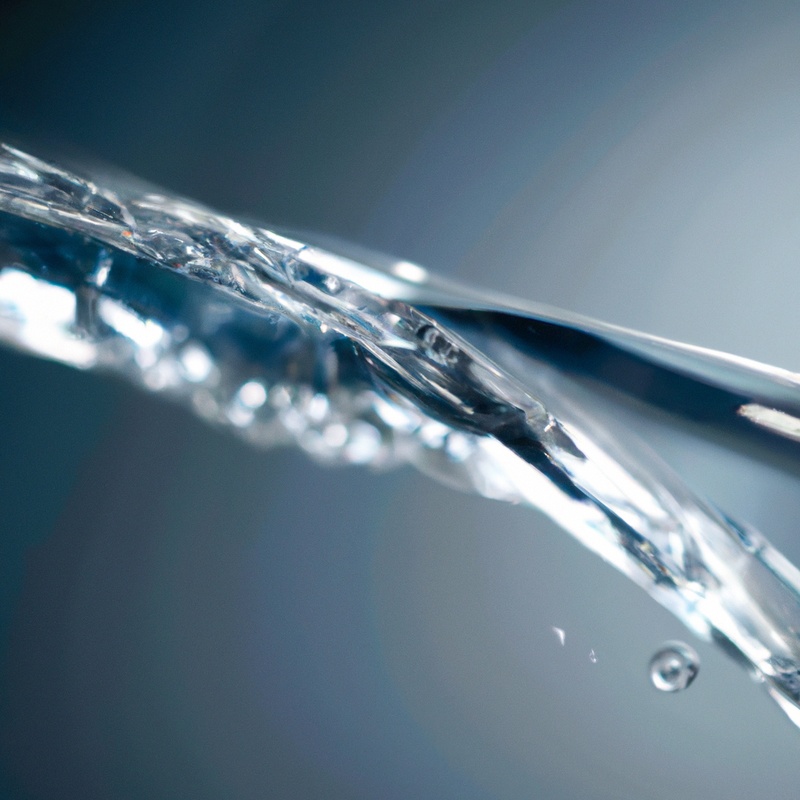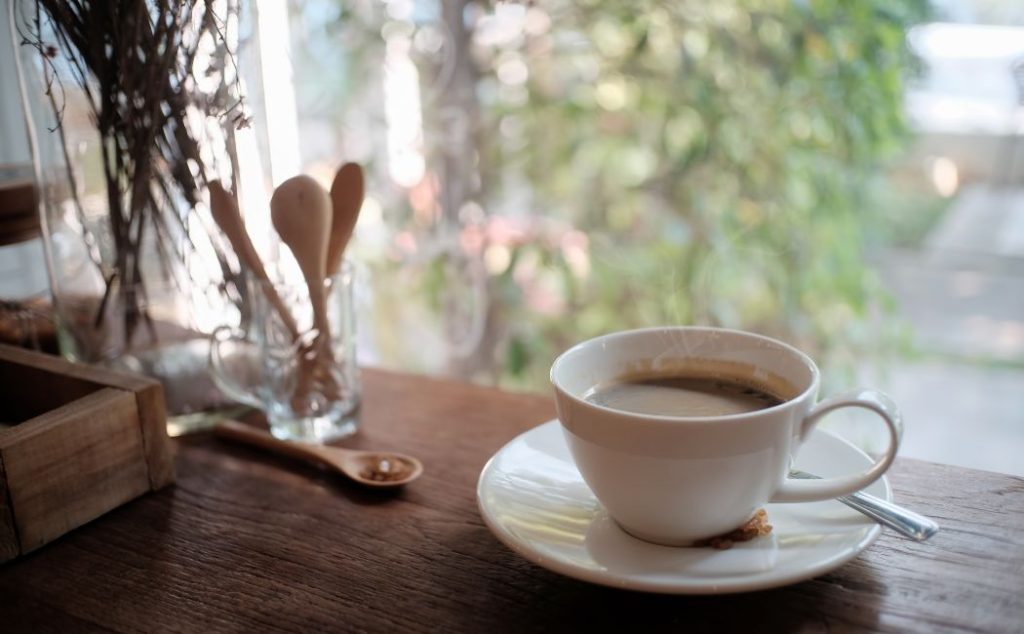Key Takeaways:
- The optimal water temperature for brewing coffee is between 195-205°F (90-96°C).
- Using water that is too hot or too cold can result in under-extracted or over-extracted coffee.
- Water that is too hot (above 205°F/96°C) can lead to a bitter and burnt taste in your coffee.
- Water that is too cold (below 195°F/90°C) can result in a weak and underwhelming flavor in your coffee.
Are you a coffee lover on a quest for the perfect cup of joe? Well, you’ve come to the right place because today we’re diving into the wonderful world of water temperature when brewing coffee.
Believe it or not, the temperature of your brewing water can make or break the flavor of your beloved beverage.
It plays a crucial role in extracting the rich flavors and aromas from those little beans. But what exactly is the best water temperature?
And does it vary depending on your brewing method?
We’ll explore all that and more in this article, so grab your favorite mug and let’s get started!
| Water Temperature | Coffee Result |
|---|---|
| 195-205°F (90-96°C) | Optimal temperature for brewing coffee, extracting the best flavors |
| 185-195°F (85-90°C) | Good temperature range for brewing coffee, still produces flavors but may be weaker |
| 205°F (96°C) | Higher temperature for brewing stronger coffee, may result in more bitterness |
| Below 185°F (85°C) | Low temperature that may not extract enough flavors from the coffee beans |
Why water temperature is important for brewing coffee
Water temperature is crucial for brewing coffee as it plays a significant role in extracting the desired flavors from the coffee grounds.
The role of water temperature in extracting flavor
The water temperature you use when brewing coffee plays a significant role in extracting flavor from the beans. Hot water between 195°F to 205°F helps to extract the desirable compounds from the coffee grounds, resulting in a balanced and flavorful cup.
Water that is too hot can over-extract the coffee, leading to a bitter taste.
On the other hand, water that is too cold may under-extract the flavors, resulting in a weak and watery brew. Finding the right water temperature is key to achieving a delicious cup of coffee.

The impact of water temperature on coffee extraction time
Water temperature greatly affects coffee extraction time.
Higher water temperatures speed up the extraction process, resulting in a shorter brewing time.
Conversely, lower water temperatures slow down extraction, prolonging the brewing time.
This impacts the flavor profile of the coffee.
Depending on your preference, you can manipulate the water temperature to control the extraction time and achieve the desired taste.
Experimenting with different water temperatures can bring out unique flavors and characteristics in your coffee.
How different water temperatures affect the taste of coffee
Different water temperatures can significantly impact the taste of your coffee. Here’s how: – Lower temperatures (around 195°F) can result in under-extraction, leading to a weak and sour taste.
– Higher temperatures (around 205°F) can cause over-extraction, resulting in a bitter and burnt flavor.
– The optimal water temperature for brewing coffee is typically around 200°F, as it allows for proper extraction and can enhance the flavors and aromas. Experimenting with water temperature can help you find the sweet spot for your preferred taste profile.
Recommended water temperatures for different coffee brewing methods
Different coffee brewing methods require specific water temperatures:
- French press: ideal water temperature is around 195°F (90°C.
- Drip coffee: optimal water temperature ranges from 200°F to 205°F (93°C to 96°C.
- Pour-over coffee: best water temperature is between 195°F and 205°F (90°C and 96°C.
- Espresso brewing: water temperature for espresso should be around 195°F (90°C.
Ideal water temperature for a French press
For a French press, the ideal water temperature is between 195°F and 205°F (90°C – 96°C).
This range ensures optimal extraction of flavor compounds from the coffee grounds.
Water that is too hot can over-extract and result in a bitter taste, while water that is too cold may lead to under-extraction and a weak flavor.
Maintaining the correct water temperature is key to brewing a rich and flavorful cup of coffee using a French press.
Optimal water temperature for drip coffee
For drip coffee, the optimal water temperature is between 195°F and 205°F (90°C to 96°C). This temperature range allows for proper extraction of flavor and aroma from the coffee grounds.
If the water is too hot, it can over-extract the coffee, resulting in a bitter taste.
On the other hand, if the water is too cold, the coffee may be under-extracted, leading to a weak and sour taste. Maintaining the right water temperature is key to brewing a delicious cup of drip coffee.
Best water temperature for pour-over coffee
The best water temperature for pour-over coffee is between 195°F and 205°F (90°C to 96°C). This is the ideal range to extract the flavors from the coffee grounds without over-extracting and causing bitterness.
It’s important to use water within this temperature range to achieve a balanced and flavorful cup of pour-over coffee.
Make sure to measure the temperature with a thermometer or use a kettle with temperature control for consistent results.
Water temperature for espresso brewing
For brewing espresso, the ideal water temperature is between 195°F to 205°F (90°C to 96°C). This range allows for proper extraction of flavors from the coffee grounds.
If the water is too hot, it can lead to over-extraction and a bitter taste.
On the other hand, if the water is too cool, under-extraction may occur, resulting in a weak and sour taste. So, aim for a water temperature within this range to achieve a balanced and flavorful espresso shot.
Factors to consider when adjusting water temperature
When adjusting the water temperature for brewing coffee, consider factors such as bean origin and roast level, coffee-to-water ratio, and altitude and brewing conditions.
Bean origin and roast level
Bean origin and roast level are two key factors in determining the best water temperature for brewing coffee. The origin of the beans influences their flavor profile, acidity, and body.
For example, beans from Africa tend to have bright acidity, while those from Central America are known for their balanced flavors.
Roast level also plays a role in temperature adjustment. Lighter roasts require a higher temperature to extract flavors properly, while darker roasts benefit from slightly lower temperatures.
Understanding the origin and roast level of your beans will help you fine-tune the water temperature for a perfect cup of coffee.
Coffee-to-water ratio
When it comes to brewing coffee, the coffee-to-water ratio is essential.
It determines the strength and flavor of your brew.
To achieve a well-balanced cup, a general guideline is to use 1 to 2 tablespoons of coffee for every 6 ounces of water.
Adjust the ratio according to your preference, whether you prefer a stronger or milder taste.
Remember, experimenting with the coffee-to-water ratio allows you to personalize your brew and find your perfect cup.
Happy brewing!
Altitude and brewing conditions
Altitude and brewing conditions play a significant role in coffee brewing.
At higher altitudes, water boils at lower temperatures, affecting extraction.
As a result, you may need to increase the water temperature slightly to ensure proper extraction.
Conversely, at lower altitudes, water boils at higher temperatures, so you might need to lower the temperature.
Additionally, factors like humidity, barometric pressure, and ambient temperature can impact brewing conditions.
Monitoring and adjusting water temperature according to these factors can help achieve the best flavor in your cup of coffee.
Common myths about water temperature and coffee brewing
Common myths about water temperature and coffee brewing:
1. Myth: Boiling water is the best temperature for brewing coffee.
Fact: Boiling water can actually burn the coffee grounds, resulting in a bitter taste.
The ideal water temperature for brewing coffee is between 195°F and 205°F (90°C – 96°C).
2. Myth: Cold water is just as effective for brewing coffee.
Fact: Coffee needs high water temperature to extract its flavors properly.
Cold water may not be hot enough to fully extract the flavors from the coffee grounds, resulting in a weaker brew.
3. Myth: Reheating coffee with hot water will restore its freshness.
Fact: Reheating coffee can make it taste stale and bitter.
It’s best to brew a fresh cup if you want to enjoy the full flavors of your coffee.
4. Myth: The water temperature doesn’t matter as long as you use good quality coffee.
Fact: While high-quality coffee is important, the water temperature plays a crucial role in extracting the right balance of flavors.
Using the correct temperature enhances the taste and aroma of your coffee.
5. Myth: All coffee brewing methods require the same water temperature.
Fact: Different brewing methods have different temperature requirements.
For example, espresso machines usually require higher water temperatures, while pour-over methods may need slightly lower temperatures.
Adjusting the temperature based on the brewing method is essential for optimal results.
Frequently Asked Questions (FAQs)
What temperature is considered too hot for brewing coffee?
What temperature is considered too hot for brewing coffee?
Generally, temperature above 205°F (96°C) is believed to be too hot for brewing coffee.
At this temperature, the coffee may become over-extracted, resulting in a bitter taste.
It’s recommended to brew coffee between 195°F to 205°F (90°C to 96°C) for optimal flavor extraction.
Can I use cold water to brew coffee?
Sure! Here you go: Cold water is not recommended for brewing coffee because it doesn’t extract the flavors properly. Hot water is crucial for extracting the oils and flavors from the coffee grounds.
It helps create a balanced and flavorful cup of coffee.
Using cold water can result in weak and under-extracted coffee. So, it’s best to stick with hot water for brewing your coffee.
Is it necessary to use a thermometer for measuring water temperature?
Using a thermometer to measure the water temperature when brewing coffee is not necessary, but it can be helpful for achieving consistent results.
Without a thermometer, you can rely on visual cues like steam, bubbles, and timing to gauge the temperature.
However, a thermometer provides precise accuracy, ensuring that your coffee is brewed at the ideal temperature for optimal flavor extraction.
It’s a handy tool to have, especially if you’re a coffee enthusiast looking for precise control over your brewing process.
Final Verdict
Water temperature plays a crucial role in brewing coffee. The right temperature helps extract desirable flavors and aromas from the coffee beans.
Different brewing methods require specific water temperatures, such as the French press needing hotter water compared to pour-over or drip coffee.
Factors like bean origin, roast level, and coffee-to-water ratio should also be considered when adjusting water temperature. It’s important to debunk common myths like boiling water being the best or cold water producing superior results.
Ultimately, finding the optimal water temperature for your preferred brewing method will lead to a more enjoyable and flavorful cup of coffee.
